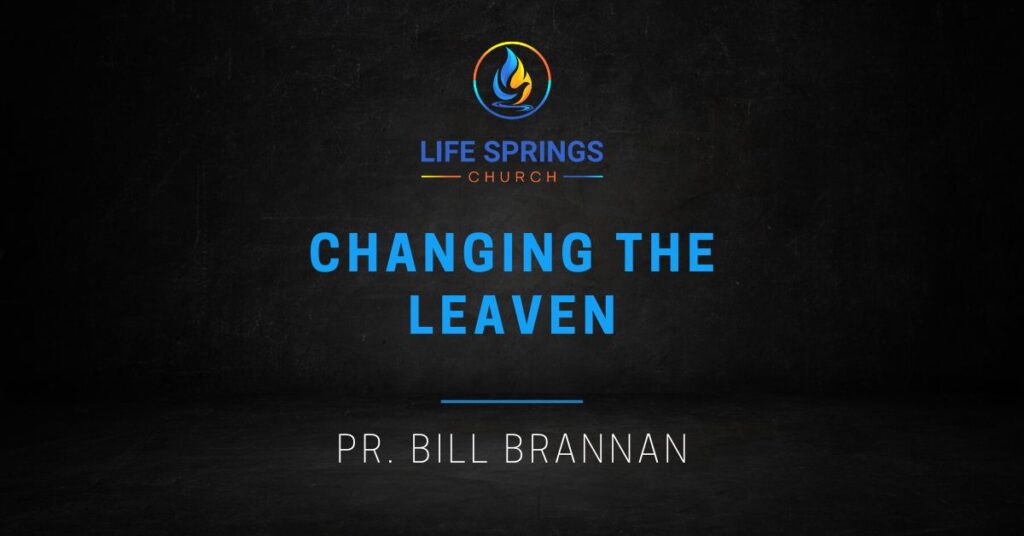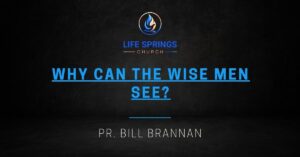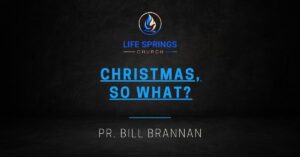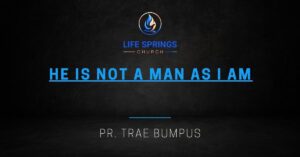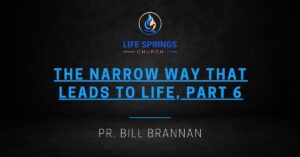The Hidden Power of Grace: Breaking Free From Religious Chains

In a world where many are searching for deeper meaning and connection, the message of grace stands as a beacon of hope. The concept of “changing the leaven” serves as a powerful metaphor for transforming our understanding of faith and spirituality. This blog explores how the right kind of leaven can nurture life, while the wrong kind can stifle it, drawing us closer to the heart of God.
Understanding Leaven
Leaven, often associated with bread-making, symbolizes the influence that can permeate our lives and communities. Just as leaven causes bread to rise, the right spiritual influences can foster growth and vitality in our faith. However, there’s also the leaven of the Pharisees, which Jesus warned against—a leaven that chokes life and promotes a rigid, legalistic faith.

Photo by Wesual Click on Unsplash
The Call to Preach the Word
In 2 Timothy 4:1-4, the Apostle Paul emphasizes the importance of preaching the word. He charges Timothy to be ready in season and out of season, to convince, rebuke, and exhort. However, the challenge lies in how these commands are interpreted and applied. There’s a temptation to use fear as a motivator, focusing on judgment rather than the life-giving nature of the Gospel.
When we approach scripture with a mindset of fear, we can inadvertently promote a toxic environment that stifles spiritual growth. Instead, we should frame our understanding around the love and grace of God, recognizing that true motivation comes from knowing we are deeply loved and accepted.

Photo by Sonika Agarwal on Unsplash
Framing Our Circumstances Positively
Paul’s imprisonment serves as a poignant example of how we can choose to frame our circumstances. Instead of succumbing to despair, he sees his chains as an opportunity for the Gospel to advance. This perspective shift is crucial; when we focus on the positive aspects of our trials, we can inspire others to do the same.
Paul’s ability to rejoice even in difficult times reflects a deep understanding of God’s sovereignty and purpose. By changing our leaven, we can transform our responses to life’s challenges, recognizing them as opportunities for growth and connection with God.

Photo by Aaron Burden on Unsplash
Recognizing the Power of Jealousy and Ambition
In Philippians 1:12-18, Paul addresses the reality of envy and selfish ambition among those preaching the Gospel. Some preached out of goodwill, while others sought to harm him. Yet, Paul chooses to rejoice that Christ is preached, demonstrating a profound understanding of grace.
This serves as a reminder that our motivations matter, but God can still use flawed vessels to accomplish His purposes. Rather than focusing on the shortcomings of others, we should celebrate the work of God in their lives, recognizing that He can bring life even through imperfect situations.

Photo by Europeana on Unsplash
The Danger of Legalism
Legalism can be a subtle leaven that creeps into our faith, promoting a mindset of rules over relationship. In Matthew 7:21-23, Jesus warns that not everyone who claims to know Him will enter the Kingdom of Heaven. This sobering truth challenges us to examine our hearts and motivations.
Are we focused on external appearances and works, or are we cultivating a genuine relationship with Christ? Love should be the foundation of our faith, driving our actions and interactions with others. When we prioritize love, we reflect the true nature of God.

Photo by Priscilla Du Preez 🇨🇦 on Unsplash
Unity in Diversity
Romans 14 addresses the necessity of accepting those who are weak in faith, urging us to avoid disputes over doubtful matters. In a diverse community, it’s crucial to extend grace to one another, recognizing that we all have different backgrounds and convictions.
True unity doesn’t mean uniformity; rather, it embraces the richness of our differences. By practicing love and understanding, we can foster a community that reflects the heart of God, welcoming all into His presence.

Photo by Brooke Cagle on Unsplash
Revival and Transformation
The call to change the leaven is ultimately about revival—a movement of God that brings life to dry bones. When we shed the traditions of men that choke life, we open ourselves to the fullness of what God has for us. This revival isn’t just for individuals; it has the potential to transform entire communities and nations.
As we seek to embody the grace and love of God, we become conduits of His life-giving power. The world is hungry for authentic faith, and when we change the leaven, we can provide the bread of life that satisfies their deepest longings.

Photo by Brice Cooper on Unsplash
Conclusion: Embracing the Father’s Heart
In conclusion, the journey of changing the leaven is about aligning our hearts with the Father’s. It’s about recognizing the subtle ways that legalism can creep in and choke our spiritual vitality. By embracing grace, love, and unity, we can cultivate an environment that nurtures life.
Let us be bold in our pursuit of God’s heart, asking Him to remove any leaven that hinders our growth. As we do, we’ll find ourselves transformed, becoming vessels of His grace in a world that desperately needs it.

Photo by Ismael Paramo on Unsplash
Changing the Leaven
- There is a well of living water opening up that is going to become a river of life in the earth.
- I believe life is the essential quality, and that breaking the traditions of men that choke life is at the heart of what God is doing.
- Changing the leaven in how we read scripture – we are going to look at 3 passages of scripture.
- We want to see and hear the Father’s heart.
- PASSAGE 1 – 2 Timothy 4:1–4 (NKJV) — 1 I charge you therefore before God and the Lord Jesus Christ, who will judge the living and the dead at His appearing and His kingdom: 2 Preach the word! Be ready in season and out of season. Convince, rebuke, exhort, with all longsuffering and teaching. 3 For the time will come when they will not endure sound doctrine, but according to their own desires, because they have itching ears, they will heap up for themselves teachers; 4 and they will turn their ears away from the truth, and be turned aside to fables.
- We can use scripture in a manipulative way that motivates through guilt, manipulation and external coercion, but when we realize all of those things are manifestations of the kingdom of darkness rather than light, that they bring death rather than life, we wrestle with scriptures so they bring life not death.
- Charged to preach the Lord in light of the judgment! Fear of punishment or passion for reward.
- Multi-layered – to deliver people from death we preach the Word?
- Convince, rebuke, exhort – with patience
- Witnessed a wonderful rebuke this week.
- Self-righteous champion of truth or compassion?
- This spirit of self-righteous judgment – the traditions of men create a compulsion to speak the truth without discerning whether it will promote or harm the kingdom.
- PASSAGE 2 – Philippians 1:12–18 (NKJV) — 12 But I want you to know, brethren, that the things which happened to me have actually turned out for the furtherance of the gospel, 13 so that it has become evident to the whole palace guard, and to all the rest, that my chains are in Christ; 14 and most of the brethren in the Lord, having become confident by my chains, are much more bold to speak the word without fear. 15 Some indeed preach Christ even from envy and strife, and some also from goodwill: 16 The former preach Christ from selfish ambition, not sincerely, supposing to add affliction to my chains; 17 but the latter out of love, knowing that I am appointed for the defense of the gospel. 18 What then? Only that in every way, whether in pretense or in truth, Christ is preached; and in this I rejoice, yes, and will rejoice.
- A powerful framing of the narrative – obviously because the spirit of darkness was choking life among some believers because Paul was in prison.
- Others saw the same situation and it encouraged them to be bold and fearless.
- “Never miss the opportunity to frame a crisis” – some used Paul’s chains to promote their agenda.
- They preached Christ out of jealousy and strife
- Not uncommon for there to be weeds and wheat in our lives. – They wanted to beat him when in the natural he could easily be down.
- He tells us they are motivated by selfish ambition.
- HOW DO YOU THINK WE SHOULD ASSESS THE MINISTRY OF SUCH PREACHERS?
- They preached Christ out of jealousy and strife
- The Father’s heart – he rejoiced that Christ is preached.
- Matthew 7:21–23 (NKJV) — 21 “Not everyone who says to Me, ‘Lord, Lord,’ shall enter the kingdom of heaven, but he who does the will of My Father in heaven. 22 Many will say to Me in that day, ‘Lord, Lord, have we not prophesied in Your name, cast out demons in Your name, and done many wonders in Your name?’ 23 And then I will declare to them, ‘I never knew you; depart from Me, you who practice lawlessness!’
- This is an extremely encouraging passage to me – it proves that God can use anyone!!!
- This passage is often used to motivate people from fear to act externally as legalism requires.
- The first problem is that scripture interprets scripture, and when the gospels describe the judgment, the righteous who inherit did not even realize they did good works
- The good works can be summarized by bringing life not death.
- They bore good fruit because of the work of grace in their lives – it is who they are. (Previously… Beware of wolves who come as sheep, trees only bear fruit of who they are. Maybe judgment is just a separation of what we are – WHY WE MUST BE BORN AGAIN).
- I think Jesus speaks like this to get us to ask questions so we discover what really matters.
- People often focus on the miraculous as proof of spirituality or authenticity.
- Lawlessness, when the law is about loving – LOVE IS THE TRUE MEASURE!
- PASSAGE 3
- Romans 14:1–4 (NKJV) — 1 Receive one who is weak in the faith, but not to disputes over doubtful things. 2 For one believes he may eat all things, but he who is weak eats only vegetables. 3 Let not him who eats despise him who does not eat, and let not him who does not eat judge him who eats; for God has received him. 4 Who are you to judge another’s servant? To his own master he stands or falls. Indeed, he will be made to stand, for God is able to make him stand.
- Romans 14:5–10 (NKJV) — 5 One person esteems one day above another; another esteems every day alike. Let each be fully convinced in his own mind. 6 He who observes the day, observes it to the Lord; and he who does not observe the day, to the Lord he does not observe it. He who eats, eats to the Lord, for he gives God thanks; and he who does not eat, to the Lord he does not eat, and gives God thanks. 7 For none of us lives to himself, and no one dies to himself. 8 For if we live, we live to the Lord; and if we die, we die to the Lord. Therefore, whether we live or die, we are the Lord’s. 9 For to this end Christ died and rose and lived again, that He might be Lord of both the dead and the living. 10 But why do you judge your brother? Or why do you show contempt for your brother? For we shall all stand before the judgment seat of Christ.
- The point of reading these scriptures is to break the traditions of men that choke out our life and choke life in one another.
- Changing the leaven
- Revival – live again – Maybe even more life than we have ever experienced – a river of life.
- Life under the sun has a way of choking true life.
- Life under the light of His presence is glorious.
- Wrestling with life under the sun until we go to the sanctuary
- There is an abundance of life God wants each of us to experience, it is what Christ died that we might receive.

